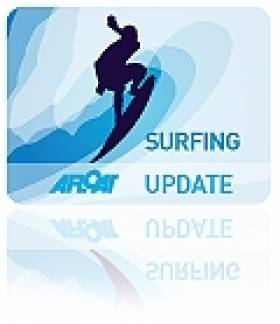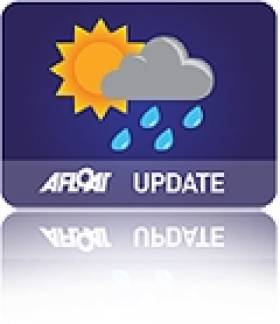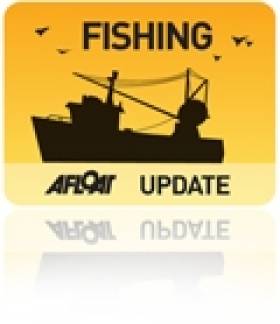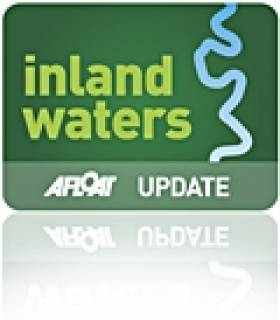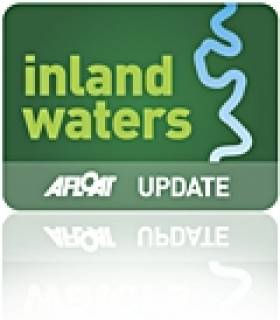Displaying items by tag: WINTER
No Tow-In Surf Session for 2012
#SURFING - The second Billabong Tow-In Surf Session will not sadly run this year, following the end of the four-month waiting period yesterday.
Organisers decided to postpone the invitation-only event till next winter after conditions off Mullaghmore Head in Co Sligo failed to reach the minimum height requirement, as Magicseaweed reports.
“We’ve had a few swells that have come close,” said contest organiser Paul O’Kane of the Irish Surf Rescue Club. “However we set the standard incredibly high with the first event and were determined to only hold the event if the conditions were as good as that, if not better.”
Magicseaweed’s Ben Freeston concurred, saying that “the conditions needed for Mullaghmore to show it’s real face are so specific you might only see them a handful of times in the best years.
“This year we have had four or five swells that were big enough to be interesting, but not quite competition standard.”
The inaugural session was organised in an effort to dispel the myth that tow-in surfing, where surfers are towed by jetski to bigger offshore waves, is an irresponsible activity.
Last year's contest was also immortalised in an upcoming documentary from Mully Productions.
Weather Warning for Irish Sea as Winter Winds Sweep In
#WEATHER - Met Éireann has issued a weather warning for the Irish Sea for the next 24 hours due to expected gale force westery winds.
A small craft warning has also been issued, with west to southwest winds continuing to reach force 6 tonight on the Irish coast from Carlingford Lough to Roches Point to Slyne Head.
The high winds marks the first wave of real winter weather after a milder-than-average November, the Evening Herald reports.
A forecaster told the paper that strong winds have "reached storm force on the Irish coasts from Belfast Lough to Wicklow Head to Mizen Head and on the Irish Sea.
"We expect that by tonight they will slightly drop but may still reach a strong gale force."
Wild Salmon Showing Signs of Adapting to Climate Change
New evidence is indicating that wild salmon are adapting to climate change by feeding in colder waters, The Irish Times reports.
According to salmon expert Dr Ken Whelan, wild salmon are now diving as far as 800m below the surface - normally the preserve of the sperm whale - to feed for periods of up to 24 hours during winter months.
They are also travelling closer to the polar ice fields, in response to the warming of the Atlantic Ocean.
The change in behaviour was noted at a salmon summit in France attended by more than 100 fishery managers and scientists from across Europe, which was convened to discuss the threat of climate change to wild salmon stocks at sea.
Plankton levels are particularly affected by the changing wind and ocean currents, said Dr Whelan of findings from the EU-funded Salsea programme, which he led.
“Surviving the first winter at sea seems to be the key challenge for these stocks, and the salmon in the northern states like Norway and Russia, seems to be less affected,” he said.
But the recent return of wild salmon to the Tolka in Dublin, as well as healthy numbers along other inland waterways, highlighted that the news was not all doom and gloom.
The Irish Times has more on the story HERE.
End of Winter Mooring Period in Public Harbours
Safety Precautions for Vessels and Crew
Owners and masters availing of winter mooring facilities for their vessels on any of Waterway Ireland's navigations are advised to choose a sheltered berth within the harbour, place adequate fendering between the vessel and the harbour wall and secure the vessel with double mooring lines.
The vessel should be monitored on a regular basis in the event that it should be taking or making water and particularly so after a period of stormy or frosty weather.
Owners visiting harbours during this period and who intend to work on their vessels should bear in mind the changed environmental conditions at this time of year and to take the appropriate measures necessary to reduce risks associated with working on or near water.
It is advised that personal protective clothing, to guard against the cold and the wet, including a personal flotation device, should be worn and all items checked for serviceability beforehand, bearing in mind:
• Low air temperatures
• Low water temperatures
• Reduced daylight
• Inclement weather
• Raised water levels
• Flood conditions including increased rates of flow
Working on or near water should preferably be undertaken in the company of a colleague. Lone working should be avoided if possible and especially at remote locations. Ensure that someone has been informed of your whereabouts and expected time of return.
Further, carry a mobile phone and/or a handheld Marine VHF, fully charged, for keeping in contact while being aware that full phone coverage is not available everywhere.


























